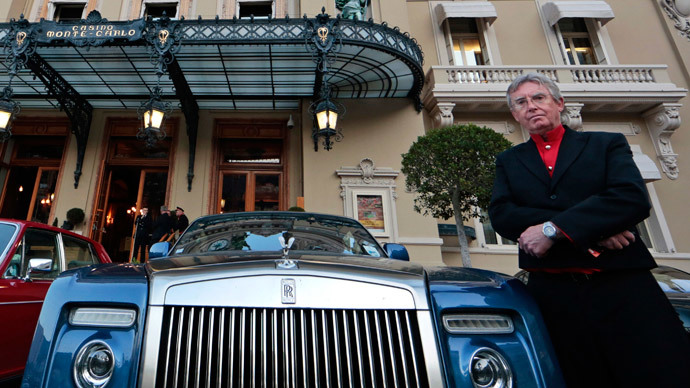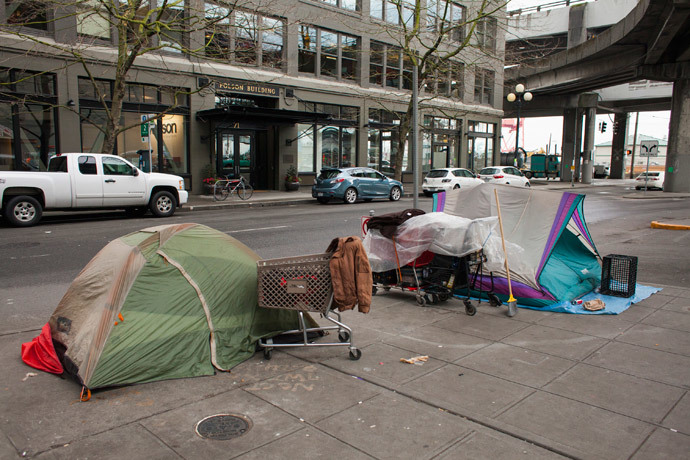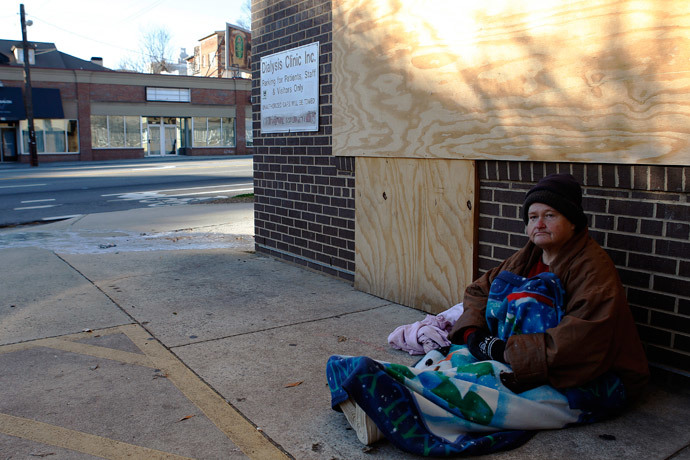Richest 1% to own more than half world's wealth by 2016 - Oxfam

As global movers and shakers head to the World Economic Forum in Davos, Switzerland, Oxfam is warning that an increasing wealth disparity is “leaving ordinary people voiceless and their interests uncared for.”
The collective wealth of the world’s richest 1 percent will
exceed that of the other 99 percent of the global population next
year, unless steps are taken to address the inequality, Oxfam
warned ahead of the annual Davos meeting.
Oxfam, an anti-poverty charity, released a report titled, “Wealth: Having It All
and Wanting More,” which reveals that the richest 1 percent,
who had an average wealth of $2.7 million per adult in 2014, have
seen their share of global wealth soar yet further, increasing
from 44 percent in 2009 to 48 percent in 2014.
READ MORE:World’s 400 richest get richer, adding $92bn in 2014
At this rate, the richest 1 percent, who became the focal point of public outrage during the 2011 Occupy Wall Street protests, will own more than 50 percent of the world’s wealth by 2016.
Richest 1% will own more than the rest of population by 2016 http://t.co/BBhka0UCXx#EvenItUp Read our latest #inequality report
— Oxfam International (@Oxfam) January 19, 2015
Oxfam executive director Winnie Byanyima, who will co-chair the
Davos symposium, said she will draw attention to the grim fact
that “one in nine people do not have enough to eat and more
than a billion people still live on less than $1.25 a day,”
she told The Guardian.
“Do we really want to live in a world where the 1 percent own
more than the rest of us combined? The scale of global inequality
is quite simply staggering and despite the issues shooting up the
global agenda, the gap between the richest and the rest is
widening fast.”

However, despite constant warnings that the upward curve in wealth concentration will only lead to disaster, the rich continue to gobble up a bigger and bigger share of the global wealth pie.
Last year, Oxfam reported that the world’s 85 richest people have the same wealth as the poorest 50 percent (3.5 billion people). This year, Oxfam said the reality has become even more worrisome, with just 80 people owning the same amount of wealth as more than 3.5 billion people.
Rising #inequality & climate change are defining challenges of our time. You can help: http://t.co/ONSAl4jeRJ#wef15pic.twitter.com/B4ee6BVYvf
— Oxfam International (@Oxfam) January 16, 2015
In 2010, the number of individuals owning the same amount of
wealth as the poorest half of the world’s population was 388.
According to Byanyima, one way of addressing the “rising tide
of inequality” is to crackdown on tax-dodging by
corporations, and to push for progress towards a global deal on
climate change.
READ MORE:America’s wealthiest families smash income ceiling, middle-class left far behind
The statistics provided by Oxfam paint a dark portrait of the
challenges facing the planet in the face of severe wealth
concentration.
“Twenty percent of billionaires have interests in the
financial and insurance sectors, a group which saw their cash
wealth increase by 11 percent in the 12 months to March
2014,” according to the group.
These corporate sectors spent $550 million “lobbying policy
makers in Washington and Brussels during 2013,” severely
altering the scope of government representation originally
designed for the electorate.

Meanwhile, during the 2012 US election campaign, the financial sector provided $571 million in campaign contributions, Oxfam said.
The charity said the wealth of the super-richest 80 people doubled between 2009 and 2014, and that increasingly the wealth was being used by the rich to further their own interests, usually by lobbying efforts in government.
More than one-third of the 1,645 billionaires listed by Forbes magazine inherited some or all of their riches.
Oxfam said it was calling on governments to adopt a seven-point plan to alleviate global inequality:
• Clamp down on tax dodging by corporations and rich individuals.
• Invest in universal, free public services such as health and education.
• Share the tax burden fairly, shifting taxation from labour and consumption towards capital and wealth.
• Introduce minimum wages and move toward a living wage for all workers.
• Introduce equal pay legislation and promote economic policies to give women a fair deal.
• Ensure adequate safety nets for the poorest, including a minimum income guarantee.
• Agree a global goal to tackle inequality.












